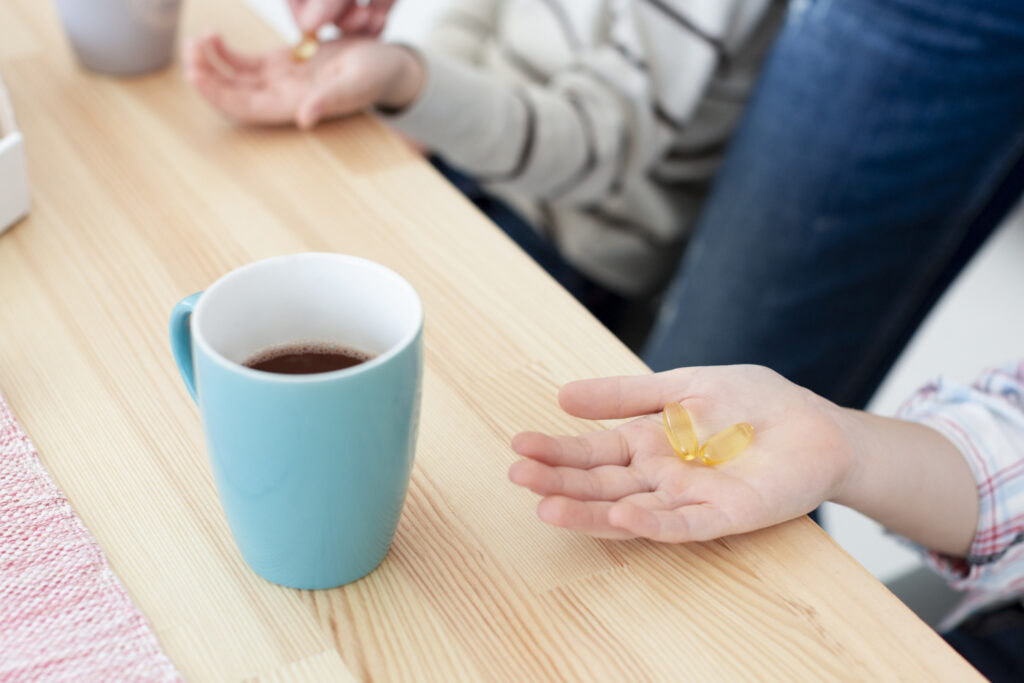
In this article
Overview
For many, the day doesn’t officially start without a steaming cup of coffee. This beloved morning ritual is known for its ability to kickstart the day and get the digestive system moving. However, what many might not realize is that coffee can interact with certain medications, affecting how they are absorbed and how effective they are. This article explores which medications should never be taken with coffee and why it’s important to be mindful of this common interaction.
The Science Behind Coffee and Medication Interactions
Studies have shown that coffee can stimulate the stomach and alter the digestive process. In 2020, a group of researchers reviewed various medications and their interactions with coffee, concluding that coffee can significantly affect the absorption, distribution, metabolism, and excretion of many drugs. This means that your morning cup of coffee could be undermining the effectiveness of your medication.
Thyroid Medications: Levothyroxine and More
If you have hypothyroidism, you might be prescribed levothyroxine or similar thyroid medications. These medications are crucial for managing symptoms such as weight gain, dry skin, and hair loss. However, drinking coffee simultaneously with thyroid medication can significantly reduce its absorption, sometimes by more than half, making it less effective. To ensure optimal absorption, it’s best to take your thyroid medication with water and wait at least 30 minutes to an hour before having coffee.
Cold and Allergy Medications: The Caffeine Overlap
Cold and allergy medications often contain stimulants like pseudoephedrine. Combining these with coffee can increase stimulant effects, leading to restlessness and insomnia. Specifically, allergy medications like fexofenadine can overstimulate the central nervous system when taken with coffee. It’s advisable to consult your healthcare provider about the timing of these medications relative to your coffee intake.
Diabetes Medications: Managing Blood Sugar
For those managing diabetes, coffee can be a double-edged sword. Adding sugar or milk to your coffee can cause a spike in blood sugar levels, complicating the effectiveness of diabetes medications. Moreover, caffeine itself can raise insulin and blood sugar levels, potentially exacerbating symptoms and complicating diabetes management. According to a study by the American Diabetes Association, excessive caffeine intake can make blood sugar management more difficult and increase the risk of complications.
Alzheimer’s Medications: Protecting Cognitive Function
Alzheimer’s disease affects millions and is a leading cause of death among older adults. Medications like donepezil, rivastigmine, and galantamine help manage symptoms by protecting the neurotransmitter acetylcholine. However, coffee can interfere with these medications by tightening the blood-brain barrier and reducing their effectiveness. High coffee intake can impair the protective effects of Alzheimer’s medications, making symptom management more challenging.
Asthma Medications: Bronchodilators and Coffee
Asthma affects millions, and many rely on bronchodilators like aminophylline or theophylline during flare-ups. These medications relax the airways but come with side effects such as restlessness and stomach pain. Coffee can amplify these side effects and reduce the absorption of the medication, making it less effective during an asthma attack. It’s best to avoid coffee around the time you take these medications.
Osteoporosis Medications: Ensuring Bone Health
Osteoporosis medications, such as risedronate or ibandronate, are essential for maintaining bone health. These medications are most effective when taken on an empty stomach with plain water. Coffee can significantly reduce their absorption, diminishing their effectiveness by more than half. To maximize the benefits, take osteoporosis medications with water and wait before having coffee.
Antidepressants: Balancing Mood and Coffee
Antidepressants are widely used to manage depression, a condition affecting millions. Medications like fluvoxamine, amitriptyline, escitalopram, and imipramine can be affected by coffee. Coffee can alter the metabolism of these drugs, reducing their absorption and effectiveness. For some, like fluvoxamine, coffee can enhance side effects such as insomnia and heart palpitations. It’s wise to consult your healthcare provider about the timing of your antidepressant medication and coffee intake.
Antipsychotic Medications: Ensuring Stability
Antipsychotic medications, including phenothiazine, clozapine, haloperidol, and olanzapine, are vital for managing conditions like schizophrenia and major depressive disorder. Coffee can interfere with the absorption of these medications, reducing their effectiveness. Consistent coffee consumption should be maintained, and any changes should be discussed with your healthcare provider to ensure proper medication management.
Blood Pressure Medications: Controlling Hypertension
Hypertension, or high blood pressure, is a silent but common condition that many manage with medications like verapamil or propranolol. Coffee can interfere with the absorption of these medications, making them less effective. Additionally, caffeine can temporarily raise blood pressure, counteracting the medication’s benefits. Discuss with your healthcare provider how to best time your coffee intake to maintain optimal blood pressure control.
Melatonin: The Sleep Hormone
Melatonin, a natural hormone and popular sleep aid, can be counteracted by coffee. Caffeine stimulates the central nervous system, making you feel more awake and potentially interfering with melatonin’s sleep-inducing effects. To ensure a good night’s sleep, avoid drinking coffee close to bedtime if you take melatonin supplements.
Consult Your Healthcare Provider
If you take any of these medications, it’s essential to be mindful of your coffee consumption. Consider delaying your morning coffee if you need to take your medication first thing. For those taking multiple medications, a discussion with your healthcare provider can help you balance your medication schedule with your coffee habit. If you experience any side effects such as restlessness or insomnia, your healthcare provider can offer tailored advice to improve your situation.
By understanding the interactions between coffee and these medications, you can make informed choices that enhance the effectiveness of your treatment and maintain your overall health
A Quick Review
Consuming coffee alongside certain medications can significantly affect their efficacy and your health. This article highlights key medications that should not be taken with coffee, explaining the interactions and potential side effects, ensuring you make informed choices for your health
FAQS
Why should I avoid coffee with my thyroid medication?
Coffee can reduce the absorption of thyroid medication, making it less effective.
Can coffee affect my allergy medication?
Yes, coffee can increase restlessness and insomnia when taken with allergy medications containing stimulants like pseudoephedrine.
Can I drink coffee if I’m on osteoporosis medication?
Coffee can make osteoporosis medications less effective, so it’s best to take them with water instead.











